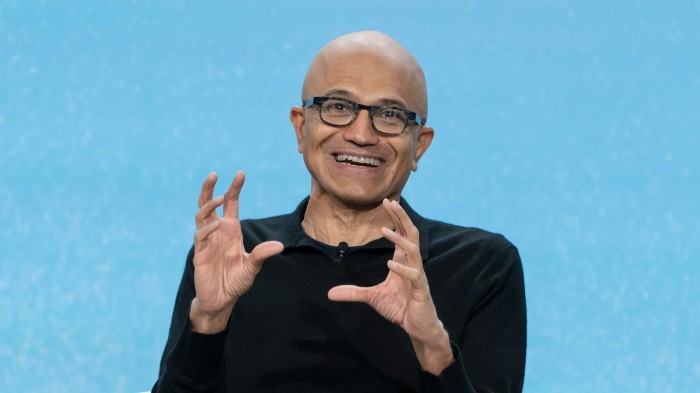Unlock the White House Watch newsletter for free
Your guide to what Trump’s second term means for Washington, business and the world
The writer is a longtime Silicon Valley investor
Every day the Oval Office seems closer to becoming the equivalent of what the sidewalk outside Satriale’s Pork Store used to be for Tony Soprano: a place where a dubious cast of characters spawns brutish extortion schemes and hit jobs.
The latest example of this is the $100,000 levy that President Donald Trump slapped on the 85,000 US work permits granted each year to skilled, foreign nationals under the H-1B visa scheme. As usual with the Trump administration, the announcement was chaotic and half-baked.
It was yet another distraction for the management teams of America’s leading companies, already whipsawed by various other presidential edicts. They have since spent hours devising emergency travel plans for foreign employees who might get stranded overseas while also seeking clarity about whether the levy was going to be due every year or applied to existing workers.
Set aside the drama, the announcement demonstrated yet again the fragile grasp the president and his acolytes have about why the US — especially its technology sector — has worked so well. The large tech companies hire foreign nationals because they possess particular skills. They also retain them to perform tasks in areas where the US has labour shortages.
They don’t do so, as Trump seems to believe, to deprive Americans of jobs or for cost reasons. Nor is it a sign of abuse, as the president alleges, if a tech company institutes lay-offs in the same year as they hire H-1B visa holders. US companies are forbidden to discriminate against foreign workers doing the same jobs as American citizens. They are also required to notify employees of their intention to hire foreign workers. And, for that matter, warehouse workers, account managers, brand specialists and dishwashers do not require the same skills as a biochemist or software engineer.
Like other Trump schemes, this H-1B caper will backfire. Advances in technology mean that it is less important for the tech companies to bring workers to America. Much of the work these H-1B visa holders perform can be done as easily in Istanbul, Tallinn, Warsaw, Prague or Bengaluru as in San Francisco, California (home to Anthropic and OpenAI) or Austin, Texas (home to Oracle).
Engineers with undergraduate degrees from the better eastern Europe, Turkish and Indian universities are every bit as well qualified as their American counterparts. The Trump administration should be encouraging tech companies to expand in the US not scatter overseas.
Recommended
If companies, fearful of Trump’s next move, change their policies it will mean these foreign economies rather than the US will receive a shot in the arm. It will also deprive America of a fresh generation of entrepreneurs since the most able of the H-1B visa holders often go on to start companies of their own.
The administration might have been better advised to devise a long-term programme that would attract the brightest foreign workers and students to the US. For a start, it could clear up the confusion and uncertainty that still reign, following an earlier decree, among foreign students about how they gain access to the American universities that have offered them places.
How about doubling or tripling the number of H-1B visas? How about automatically offering not H-1B visas but full citizenship to any foreign national who receives a PhD degree in a STEM subject from the 50 highest calibre universities in the country? Trump could also have chosen to demand higher standards of education in the US, starting at elementary school levels. Sadly, on this topic, he has been mute.
You don’t have to look far to see the considerable benefits of granting visas to foreign workers. In the decade leading up to the pandemic, eight US companies that later participated in the development of vaccines received approval for 3,310 H-1B visas for, among other categories, biochemists and biophysicists. Stroll into many hospitals in America and, if you are fortunate, you will encounter a foreign-born doctor or nurse.
Two of the finest chief executives in the US, Satya Nadella of Microsoft and Sundar Pichai of Google, are here because of the attitudes of prior administrations. Ditto for Hock Tan, CEO of Broadcom, Lip-Bu Tan, CEO of Intel, Shantanu Narayen, CEO of Adobe, Jensen Huang, CEO of Nvidia, Dara Khosrowshahi, CEO of Uber, and Elon Musk, CEO of the universe. The list goes on.
One very small footnote: I too was a beneficiary of a US visa. Having first entered the country on a student visa in 1976, I was granted an H-1 visa, a precursor to the H-1B, in 1979. Later, I became a citizen. And ever since I have felt grateful to the country that welcomed me.


